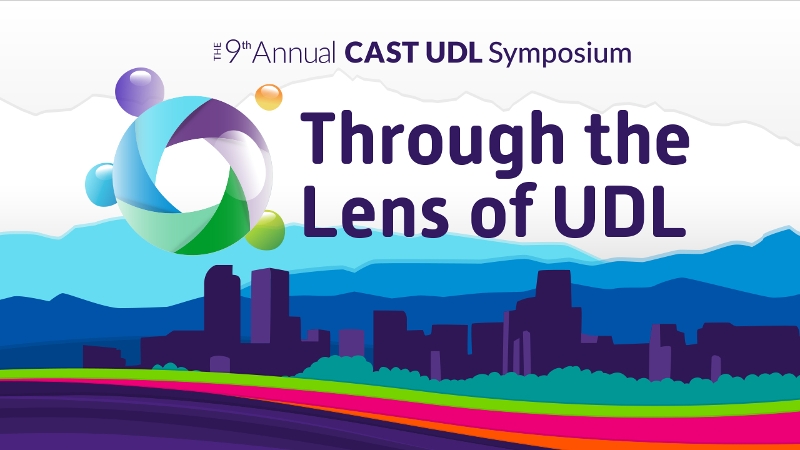I will be presenting in-person at the 9th Annual CAST UDL Symposium at the Westin Denver Downtown in Colorado.
Dates
Monday, July 31 – Tuesday, August 1, 2023
How are you addressing the Symposium theme, UDL as the Lens?
Many people underestimate the role that internalized shame plays in Neurodivergent people. Additionally, much of the research around suicide rates or shame concerning neurodivergence is perceived as flawed by the Neurodivergent community. This is because the research often centers around a very narrow and neurotypical definition of abstractions such as shame, loneliness, and belonging. Just because shame affects us differently or is catalyzed by different situations doesn’t mean it isn’t endemic and painful. Suicide is the second most common cause of early death in Autistic people (epilepsy is the first), and members of the Autistic community are 2.5 times more likely to take their own life than the general population. Autistic women without learning disabilities are at the greatest risk of ending their own lives. It’s hard to explain to someone who hasn’t experienced the toxicity around Autism in our society. The more prominent autism charities have been actively trying to suppress the voices of actual Autists for decades. It takes a lot of weeding through a google search to find affirming material written in a neuro-inclusive way for students to learn about themselves and each other. Many Allistic people view Autism as a disease needing a cure; however, most Autists view Autism as an intrinsic part of their identity and see a cure as someone wanting to replace who they are with a new and different person. We want equity, dignity, human rights, and a world that doesn’t actively disable us.
I have seen UDL’s power to reduce stigmas and promote a more socially equitable class dynamic. As students learn to take control of their learning and fit their best-fit learning formula, they no longer compete in the same way or view learning and thinking the same way. Teaching books explain that UDL is a ‘lens’ for teachers but often fail to mention that it is also a ‘lens’ for students. UDL can shape how they relate to one another and view the world. UDL does a great job of normalizing Neurodiversity.
To change the suicide stats of people with Autism, we need to change how tomorrow’s leaders think about Autism
today. My workshop aims to take this one step further by making the existing UDL lens even more beneficial to Neurodivergent Learners. Participants will learn how to use affirmative language and communication best practices for students with Autism and other Learning Differences. The attendees will also be given the tools and resources to ensure that strong positive representations of Neurodivergent people are woven into the fabric of their classes.
Participants will individually and collaboratively reflect on if their current classroom is neuro-inclusive. Explore tools and resources to bring affirming positive representations in school, and experiment with a student-centric model where students customize their own learning opportunities so that every student can be autonomous. To me, learning has no limits means, that education and the experiences in our classrooms have the potential to create the type of ripple that truly can change society.
